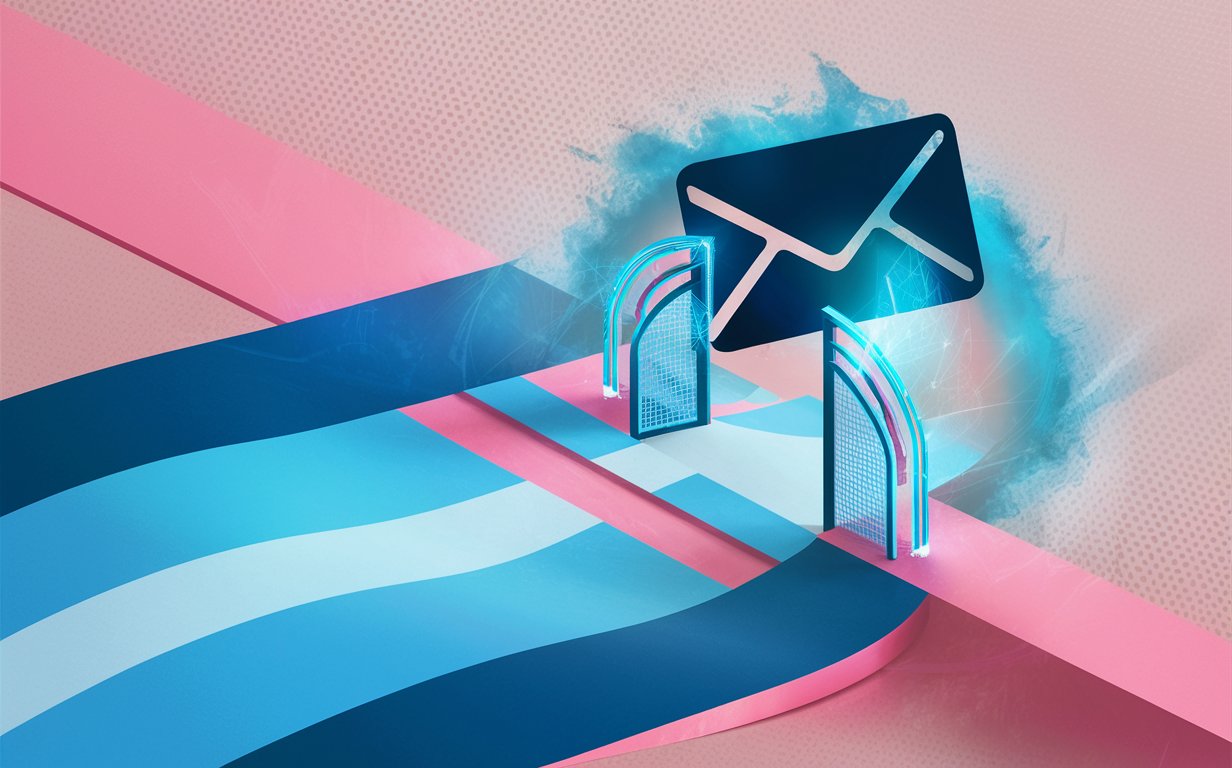Sending a thank you email after an interview is one of the simplest ways to leave a lasting impression and increase your chances of getting the job. In this comprehensive guide, we’ll explore the importance of writing a well-crafted thank you email, how to structure the email, and offer several thank you email templates. Whether it’s a follow-up after a phone interview or a formal interview, we will walk you through the best practices to ensure your thank you email lands in the interviewer’s inbox at the right time. Keep reading to learn how to craft a thank you email that could make you one step closer to landing your dream job.
Why Should You Send a Thank You Email After an Interview?
Sending a thank you email after a job interview shows professionalism, appreciation, and attention to detail. It helps build a positive professional relationship with the hiring manager and reinforces your interest in the position. In many cases, a post-interview thank you email is expected as part of the interview process, and failing to send one can leave a negative impression. A well-crafted thank you email allows you to reiterate your qualifications, express your excitement about the position, and demonstrate that you respect the interviewer’s time and consideration. Ultimately, it can help you stand out from other candidates.
The Importance of a Strong Subject Line for Your Thank You Email
The subject line is the first thing the hiring manager or recruiter will see when they receive your thank you email. A clear and concise subject line will ensure your email doesn’t get overlooked in their inbox. A good thank you email subject line should mention your name and the reason for the email, making it easy for the interviewer to recognize who you are and why you’re reaching out.
Here are a few examples of thank you email subject lines:
- “Thank you for the interview – [Your Name]”
- “Following up on our interview for [Job Position]”
- “Thank you for meeting with me today”
- “Great to meet you during the interview for [Position Name]”
Personalizing the subject line can also help grab attention, so don’t hesitate to include the interviewer’s name in the subject line or reference something specific from the interview.
How to Write a Thank You Email After an Interview
Writing a thank you email doesn’t have to be complicated, but it’s essential to get the structure and tone right. Here are a few tips for writing an effective thank you email after an interview:
- Start with a Personalized Greeting
Address the person who interviewed you directly, using their name to make the email more personal. Avoid generic greetings like “Dear Hiring Manager.” - Express Gratitude
In the opening paragraph, thank them for their time and consideration. Be specific by mentioning something discussed during the interview, which shows that you paid attention and are genuinely interested in the role. - Reiterate Your Qualifications
Take this opportunity to briefly remind the interviewer why you’re a strong fit for the position. Reiterate your interest in the role and the company, but keep it short and sweet. - Mention Next Steps
If possible, mention the next steps in the process or offer to provide any additional information they may need. - Close Professionally
End with a professional closing, such as “Best regards” or “Sincerely,” and sign off with your full name.
Interview Thank You Email Template Example
Here’s an example of a thank you email template you can use:
Subject Line: “Thank you for the interview – [Your Name]”
Dear [Interviewer’s Name],
Thank you for taking the time to meet with me today to discuss the [Job Position] role at [Company Name]. I enjoyed learning more about the company culture and how the [Job Position] aligns with my skills and experience.
I appreciate the opportunity to interview for the position and reiterate my strong interest in joining your team. I believe my qualifications and passion for [Specific Skill/Industry] make me a great fit for the role, and I look forward to the next steps in the hiring process.
Please don’t hesitate to contact me if you need any additional information. I look forward to hearing from you soon.
Best regards,
[Your Full Name]
How Soon Should You Send a Thank You Email After a Job Interview?
Timing is critical when sending a thank you email. It’s best to send your thank you note within 24 hours of the interview, ideally the same day. Sending the email too late could give the impression that you’re not genuinely interested in the position. On the other hand, sending it too soon may make it seem rushed or insincere. A well-timed thank you email shows that you are organized, professional, and respectful of the interviewer’s time.
What to Include in the Thank You Email Subject Line
Your thank you email subject line should grab attention without being too long. Try to keep it under 50 characters so that it displays fully on both desktop and mobile devices. Including your name and the words “thank you” ensures the email’s purpose is immediately clear.
Here are some tips for writing a compelling subject line:
- Include the words “Thank you” or “Follow up” to highlight the purpose of your email.
- Personalize the subject line with the interviewer’s name or the job title.
- Keep it professional and concise.
Should You Personalize Your Thank You Email After Interview?
Absolutely! Personalizing your thank you email is crucial for leaving a lasting impression. Mention something specific that you discussed during the interview, such as a particular project or aspect of the company culture. This shows that you were actively engaged in the conversation and are genuinely interested in the position. A personalized thank you email also helps you stand out from other candidates who may send generic emails.
Can You Send a Thank You Email After a Phone Interview?
Yes! Sending a thank you email after a phone interview is just as important as following up after an in-person meeting. Even though the interview was conducted over the phone, it’s still part of the formal hiring process, and sending a thank you note demonstrates your professionalism and enthusiasm for the role.
Tips for Writing the Perfect Interview Thank You Email
Here are some tips to ensure your interview thank you email is professional and effective:
- Be concise: Keep your email short and sweet. The goal is to thank the interviewer and reiterate your interest in the position without writing a lengthy essay.
- Personalize the email: Mention specific details from the interview to show that you were actively listening and engaged.
- Be timely: Send your thank you email within 24 hours to keep the conversation fresh in the interviewer’s mind.
- Check for errors: Proofread your email carefully to avoid any typos or grammatical mistakes. A polished email shows that you care about the details.
- Follow up on any action items: If you promised to send additional information, make sure to include it in the email.
Common Mistakes to Avoid in a Thank You Email After an Interview
While sending a thank you email is essential, there are a few common mistakes you should avoid:
- Being too informal: Even though email is a more casual form of communication, your thank you email should still be professional.
- Forgetting to proofread: Spelling and grammar mistakes can leave a negative impression, so make sure to proofread your email before hitting send.
- Being too generic: A generic thank you email can feel insincere. Always personalize your email with specific details from the interview.
- Overexplaining: Keep your email concise and to the point. There’s no need to rehash the entire interview or include too much information.
What Do if You Don’t Hear Back After Sending a Thank You Email
If you haven’t heard back after sending your thank you email, don’t panic. It’s common for hiring processes to take time, and the interviewer may be reviewing multiple candidates. If a week or more has passed, it’s appropriate to send a polite follow-up email to check on the status of your application.
Myth Busting: Common Misconceptions About Thank You Emails After an Interview
In this section, we’ll bust some of the most common myths surrounding the thank you email after an interview. Many candidates misunderstand the purpose, timing, and content of this crucial email, so let’s clear up the confusion and ensure you’re sending a professional email that works in your favor.
Myth 1: You Shouldn’t Send a Thank You Email if the Interview Went Well
Fact: Even if you had a great interview, you should still send a thank you email after your interview. Sending a thank-you email isn’t just about recovering from a poor performance; it’s a professional gesture that shows the interviewer you appreciate their time and are excited about the position. This extra step helps leave a lasting impression, regardless of how the interview went.
Myth 2: You Only Need to Send a Thank You Email After a Second Interview
Fact: While it’s common to send a thank you email after a second interview, it’s also essential to send one after each interview stage. Whether it’s a phone interview or an in-person meeting, sending a thank-you note shows that you’re considerate and professional at every step of the hiring process.
Myth 3: You Can Skip the Thank You Email After an Informational Interview
Fact: Even if you’re not applying for an open position, you should still send a thank you email after an informational interview. Informational interviews provide valuable opportunities to learn more about a company and build relationships, and a thank-you email helps strengthen those connections. It shows the interviewer that you appreciate their time and the chance to discuss potential opportunities in the future.
Myth 4: A Short Thank You Email Isn’t Enough
Fact: You don’t need to write a lengthy email to make an impact. A short thank you email that is concise, thoughtful, and specific can be just as effective. The key is to show genuine appreciation, mention something specific from the interview, and express excitement about the role. A short and sweet email, as long as it’s meaningful, can leave a strong impression.
Myth 5: You Can Use a Copy and Paste Template for Every Thank You Email
Fact: While it’s okay to use a template as a starting point, you should never simply copy and paste the same email for every interviewer. Personalizing the email by referencing something you discussed in the interview or tailoring it to the specific position shows the interviewer that you’re genuinely interested in the role and invested in their company. This level of detail reflects well on you and sets you apart from other candidates.
Myth 6: If Too Many Hours After the Interview Have Passed, You Shouldn’t Send a Thank You Email
Fact: While it’s best to send a thank-you note within 24 hours, it’s better to send a late email than none at all. If you missed the window but are still interested in the role, a thoughtful thank you email can help keep you in the running. Even if some time has passed, the note shows the interviewer that you are respectful of their time and appreciate the opportunity.
Myth 7: A Thank You Email Won’t Affect Your Chances of Getting the Job
Fact: This couldn’t be further from the truth. A well-crafted thank you email can significantly increase your chances of getting the job. It gives you a chance to reiterate your interest in the position, highlight your qualifications, and show the interviewer that you’re enthusiastic about learning more about the role. Additionally, it shows the interviewer that you are professional and organized, qualities every company looks for in a candidate.
Summary of Myths Busted
- Always send a thank-you email, regardless of how the interview went.
- Send a thank you email after every interview, including phone and informational interviews.
- A short thank you email can still be effective as long as it’s personalized.
- Avoid simply copying and pasting email templates—always add a personal touch.
- It’s better to send a late thank you email than none at all.
- Sending a well-crafted thank you email can have a positive impact on your chances of getting the job.
By addressing these myths, you’ll have a clearer understanding of how to craft an appropriate thank you email after an interview and how to make it count in the hiring process. Whether you had a great interview or it’s your second interview, sending a personalized, thoughtful thank you email is a vital step toward leaving a positive and lasting impression.
Similarities and Differences: Key Aspects of the Thank You Email After an Interview
When crafting a thank you email after an interview, there are several elements that need to be considered. While certain aspects remain constant across all types of thank you emails, there are also subtle differences that vary depending on the situation or purpose of the email. Here, we will explore five key points of comparison to help you better understand the similarities and differences between various thank-you email scenarios.
1. Timing of the Thank You Email
- Similarities: Across all scenarios, whether it’s after a phone interview, a second interview, or an informational interview, timing is crucial. Sending your email within 24 hours is universally considered ideal. The goal is to let the interviewer know that you appreciate their time while keeping yourself fresh in their minds.
- Differences: Timing can slightly differ based on the context of the interview. For example, after a second interview or when hiring for multiple positions, you might send your email a bit sooner if the competition is tight. After an informational interview, the urgency might not be as high, but it’s still essential to follow up within a day.
2. Content of the Thank You Email
- Similarities: In all thank you emails, expressing gratitude is the core purpose. Whether it’s a formal thank you email after an interview or a casual follow-up after an informational meeting, you always want to say something like “thank you for taking the time to meet with me today.”
- Differences: In a thank you email after an interview, you may want to reiterate your interest in the specific job, highlight something relevant you discussed, and believe my skills align with the company’s needs. In contrast, after an informational interview, your thank you email may focus more on how it was great to learn about the company or industry rather than pushing your candidacy for a particular role.
3. Tone and Formality
- Similarities: Regardless of the context, maintaining a professional tone in your thank you email is important. Every email should be polite, appreciative, and respectful of the interviewer’s time.
- Differences: The level of formality can shift depending on your relationship with the interviewer. After a formal interview, especially for a high-level position, your tone should be more formal, with an emphasis on professionalism. In more casual settings, such as informational interviews or when following up with a friendly hiring manager, you may feel comfortable using a lighter, more conversational tone.
4. Personalization
- Similarities: Personalization is essential in every thank you email. Referencing specific topics or points discussed during the interview or meeting shows that you were engaged and attentive. Mentioning something like “I’m happy to answer any information you need” or “it was great to learn about the company’s mission” is crucial.
- Differences: Personalization can take different forms depending on the context. After a formal interview, focus more on how your qualifications match the job by referencing something directly relevant to the role. For instance, you might say, “I believe my skills in project management align well with the position.” After an informational interview, personalization may involve expressing gratitude for their insights or advice and your enthusiasm to learn more about the position or company.
5. Next Steps and Expectations
- Similarities: In most thank you emails, especially after an interview, it’s common to briefly touch on the next steps in the process. You can mention your interest in learning more about the position or your eagerness to hear back.
- Differences: After a formal job interview, you’ll typically want to directly reference the next steps, such as mentioning you look forward to hearing from the company. After an informational interview, next steps may be less concrete, but you can express interest in staying connected or hearing about future opportunities within the company.
Summary of Key Points:
- Timing: Send all thank-you emails within 24 hours, though urgency may vary based on the context.
- Content: Express gratitude in all emails, but focus more on your fit for the role after an interview, and on gaining insights after an informational meeting.
- Tone: Maintain professionalism, but adjust the level of formality depending on the relationship with the interviewer.
- Personalization: Always personalize your email by referencing specific discussions, but adapt the focus to either your qualifications or the knowledge you gained.
- Next Steps: After an interview, mention the next steps directly. After an informational meeting, express interest in staying connected.
By understanding the similarities and differences in thank you emails after interviews, you can craft an appropriate and impactful follow-up that leaves a positive impression, whether you’re pursuing a job or simply expanding your professional network.
Now You Know How to Write a Thank You Note
- Send a thank you email: Always send a thank you email within 24 hours of the interview.
- Craft a strong subject line: Make sure your subject line is clear, concise, and personalized.
- Be specific and personal: Mention something discussed in the interview to make the email more engaging.
- Reiterate your qualifications: Remind the interviewer why you’re a great fit for the role.
- Keep it professional: Proofread your email and maintain a professional tone throughout.
A well-crafted thank you email can be the key to leaving a lasting impression after an interview. Use the templates and tips provided in this guide to write a thank you email that stands out in the hiring manager’s inbox and helps you move one step closer to landing your dream job.




